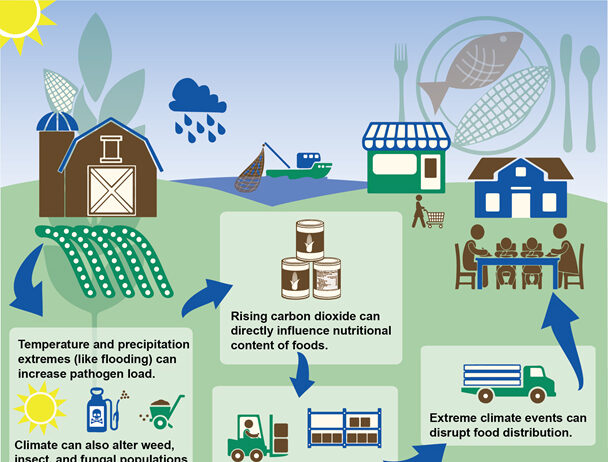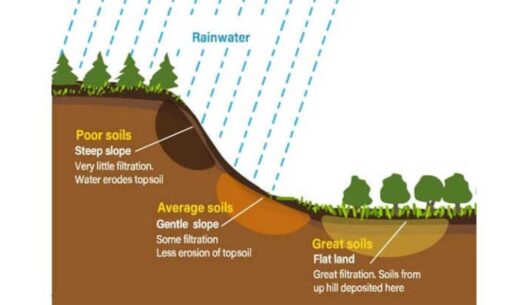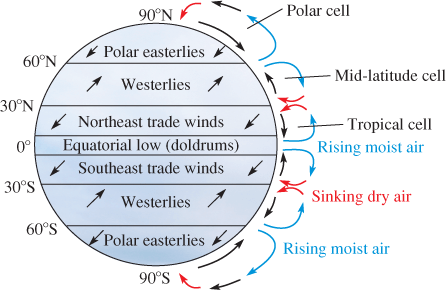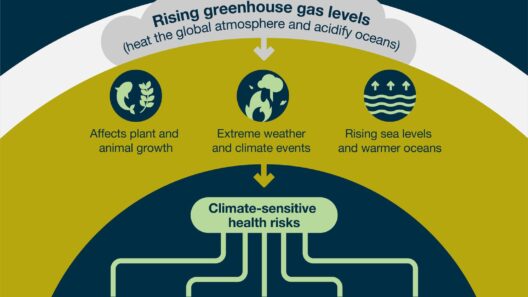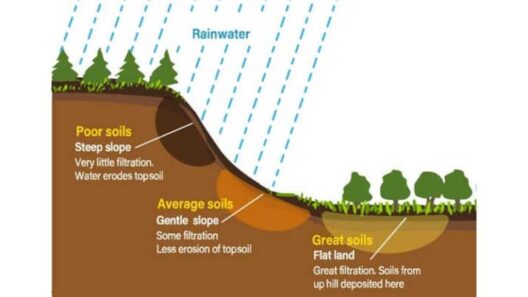Climate change is akin to a symphony where each note represents an individual’s action, resonating through the atmosphere and influencing the grand opus of our planet’s health. Every day, decisions ranging from the mundane to the significant contribute to this intricate melody of climate disruption. To comprehend how people affect climate change, we must delve into the myriad ways our everyday actions reverberate on a global scale.
At the cornerstone of climate change lies the greenhouse gas emissions primarily generated by fossil fuel consumption. The act of driving a car, turning on a light switch, or even the production of goods in distant factories emits carbon dioxide and other pollutants into the atmosphere. When viewed through the lens of an expansive earth, these emissions are like the ripples formed when a pebble is cast into a pond. A single car journey might seem innocuous, yet when multiplied by millions of similar actions, it creates a tidal wave of atmospheric alteration. Transportation alone accounts for nearly 29% of greenhouse gas emissions in the United States, underscoring the profound impact of our daily commutes.
Furthermore, energy consumption within households plays a formidable role in contributing to climate change. The appetite for electricity—whether to power appliances or charge devices—creates a consequential demand for energy sources, many of which derive from fossil fuels. This relentless thirst for power can be metaphorically likened to incessantly feeding a relentless fire; the more fuel we add, the larger the blaze grows. Household energy efficiency, therefore, is not merely an exercise in conservation but a pivotal factor that can mitigate the collective carbon footprint.
Another domain where individual actions manifest significant climate repercussions is through dietary choices. The production of food boasts a complex and interwoven relationship with carbon emissions, especially in the case of animal-based diets. Livestock farming, particularly cattle, produces copious amounts of methane—a potent greenhouse gas with a global warming potential far exceeding that of carbon dioxide. The extravagant resource inputs for livestock—land, water, and feed—lead to extensive deforestation and habitat loss as producers clear lands to cultivate feed crops. Thus, the choice to reduce meat consumption or to seek more sustainable options is not simply a dietary preference; it becomes an act of environmental stewardship.
Similarly, what we purchase and how we dispose of products are intertwined with the climate change conundrum. The production, packaging, and distribution of goods contribute to an escalating carbon imprint. Consumerism can be likened to a voracious beast, consuming resources without regard for the environmental toll it exacts. From the creation of single-use plastics to the carbon emissions associated with shipping products across the globe, the consequences of unchecked consumer behavior are dire. Additionally, improper disposal of waste generates methane emissions from landfills—an insidious reminder of our throwaway culture. By embracing practices such as recycling and opting for durable goods, individuals can coalesce efforts to lessen these profound impacts.
Moreover, our connection to nature through gardening and landscaping is another noteworthy facet of how people affect climate change. The deliberate planting of trees and native plants serves a dual purpose: it beautifies our surroundings and sequesters carbon dioxide from the atmosphere. Urban areas, which are oftentimes seen as concrete jungles, can bloom into green havens when communities collectively plant gardens, create green roofs, or engage in urban forestry initiatives. The metaphorical act of planting is a clarion call for restoration—each sapling sown is not only an act of hope but also a small revolution against climate change.
Furthermore, the political and social implications of individual actions are undeniable. Advocacy for climate-friendly policies and supporting leaders who prioritize environmental sustainability can magnify personal efforts exponentially. When united, voices raised in support of climate action create an echo that gains momentum, driving policy changes and fostering grassroots movements. Civic engagement can transform personal responsibility into collective power, validating the idea that change begins at home but reaches far beyond the confines of our living rooms.
Education plays an equally crucial role. Knowledge empowers individuals, sparking movements that can alter the trajectory of climate action. By fostering awareness and understanding of the climate crisis and its origins, communities can cultivate a culture of responsibility and advocacy. From attending local workshops to engaging in online forums, it is essential to equip oneself and others with the tools needed to combat climate change effectively. In this sense, every conversation can serve as a spark to ignite collective action, much like wildfire that spreads rapidly, fostering resilience and adaptability.
Ultimately, how people affect climate change transcends individual actions; it encapsulates a shared narrative woven from the threads of collective responsibility and interconnectedness. Just as small droplets converge into rivers that flow into the ocean, everyday choices coalesce into significant global impacts. The imagery of a symphony returns—each action, each decision steps onto the stage, contributing to a grand performance that can either provoke chaos or harmonize with the rhythms of nature.
Therefore, conscious actions, whether they be reducing carbon footprints, advocating for sustainable practices, or fostering awareness, are crucial in the fight against climate change. The onus is on each individual to contribute to a more sustainable future, for it is in the fabric of our daily lives that we wield the power to sculpt an earth that thrives rather than merely survives. The future of our planet stands resilient yet precarious, shaped by the seemingly inconspicuous choices we make today. Like ripples in a pond, they hold the weight of extraordinary potential, capable of fostering waves of transformative change.



